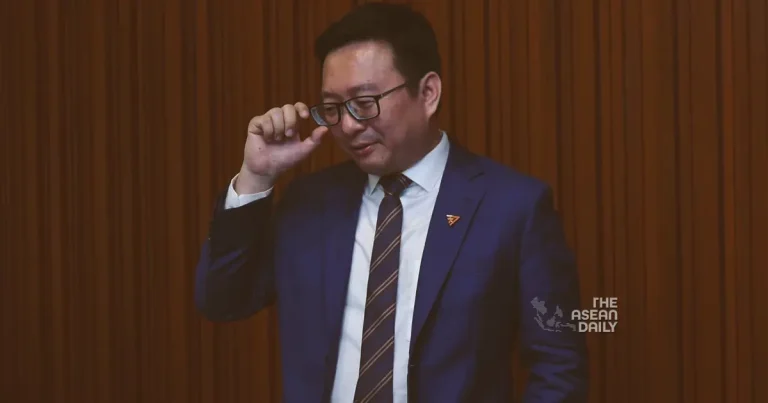9-10-2023 (BANGKOK) The newly-elected leader of the Move Forward Party (MFP), Chaithawat Tulathon, has announced the party’s firm ambition to form a government in the upcoming elections. He also shared plans to expand the MFP’s supporter base and recruit more members to achieve this goal.
In an interview with the Bangkok Post, Chaithawat, formerly the party’s secretary-general, expressed his commitment to meet the high expectations of the public. He emphasized his dedication to addressing the needs of society, acknowledging the challenges ahead.
Despite speculations that Chaithawat would be nominated as the MFP’s prime ministerial candidate in the next elections, he humbly stated that other party members might be better suited for the role.
In his new role as party leader, Chaithawat aims to ensure that all MFP MPs and members share a common understanding of the party’s strategies and objectives.
Taking on a Proactive Opposition Role
As the principal opposition party, the MFP intends to play a proactive role in holding the government accountable. Besides scrutinizing the government, it will also advocate for essential legislative bills and reform agendas in parliament.
Chaithawat clarified the MFP’s primary goal is not merely to destabilize the government but to prepare for becoming the new government in the next election while actively promoting the party’s core agendas.
The Path to a More Democratic Political Institution
The MFP is committed to becoming an even more democratic political institution. Plans are underway to involve party members and the public in internal decision-making processes, thereby expanding the party’s membership.
The party intends to have 100,000 members by the end of the year or early the following year, focusing on not just numbers but also improving recruitment procedures. District-level party committees will be established as the main mechanisms for screening candidates for local and national elections, with all committee members elected. The aim is to establish 400 district-level committees by early next year.
In addition to expanding its support base, the party aims to regain constituencies lost in previous elections.
To promote decentralization, the MFP will field candidates in all elections, giving local party members a more participatory role, which will strengthen the party from the grassroots level.
Chaithawat emphasized that the MFP must work diligently to demonstrate that its policies can be put into practice, ultimately focusing on achieving the goal of forming a government and delivering on promised reforms.
He expressed confidence in the party’s prospects, emphasizing the need to develop personnel and solidify the party’s policies. The MFP plans to formulate practical and realistic policies, with the expectation of winning at least 200 House seats in the next elections.
In the previous May 14 election, the MFP received the highest number of votes, totaling 14.4 million, and secured 151 House seats. However, it became part of the opposition as the runner-up, Pheu Thai, formed a coalition government.
Chaithawat believes that it will be challenging for the Pheu Thai-led coalition government to complete its four-year term, instructing MFP members to prepare for a government change within two years.
He acknowledged that the party faces competition from rivals but maintained that it must respond effectively to changing circumstances. With a growing demand for change among the public, Chaithawat believes that if the MFP can meet the people’s expectations, it cannot be defeated.
He reiterated the party’s stance on the need for a new constitution drafted by an elected assembly and emphasized the importance of a referendum to approve this new charter.
The MFP is committed to pushing for a referendum on the constitution but will only participate in a government panel for this purpose if the government aligns with the MFP’s principles. In 2021, the Constitutional Court ruled that any attempt to amend the constitution must receive public approval.
If the move garners public support, another referendum must be held to determine the content of the new constitution.




